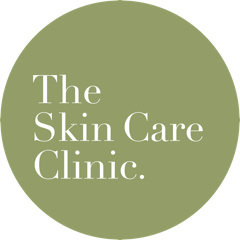What Does A Chemical Peel Do?
Latest News
What Does A Chemical Peel Do?
Understanding the Basics of a Chemical Peel
A chemical peel, in essence, is a skin-resurfacing procedure. It involves the application of a chemical solution to areas of skin, causing it to exfoliate and eventually peel off. This process reveals a smoother, more refined layer of skin beneath the old, outer layer.
The depth of a chemical peel can vary, generally classified into three categories: superficial, medium, and deep. Superficial or lunchtime peels use mild acids to penetrate only the outer layer of skin to gently exfoliate it. Medium peels go deeper, targeting the middle and outer layers of skin to remove damaged skin cells. Deep peels, which penetrate down to the lower dermal layer of the skin, offer the most dramatic results but also come with a longer recovery time.
At The Skin Care Clinic in Radlett, we understand that the concept of applying chemicals to one’s skin seems daunting. However, when performed by a qualified professional, chemical peels can be incredibly safe and effective. The types of chemicals used can include alpha-hydroxy acids (AHAs), beta-hydroxy acids (BHAs), trichloroacetic acid (TCA), and phenol, each serving a specific purpose and catering to different skin concerns.
What Does a Chemical Peel Do?
Now that we have a fundamental understanding of chemical peels, it’s time to explore the benefits they have to offer. So, what exactly does a chemical peel do for our skin? The primary goal is to remove dead skin cells, promote cell renewal, and stimulate collagen production. This process can help address a variety of skin concerns, which includes but is not limited to:
- Reducing fine lines and wrinkles: Chemical peels can help to diminish the appearance of aging by smoothing out minor wrinkles, especially those around the eyes and mouth.
- Treating acne: Certain types of peels, particularly those with salicylic acid, are effective in reducing breakouts by unclogging pores and eliminating bacteria.
- Minimising scars: By promoting skin regeneration, chemical peels can reduce the visibility of acne scars and other minor skin irregularities.
- Lightening hyperpigmentation: Sun damage, melasma, and other forms of hyperpigmentation can be lightened through the exfoliating chemical peel.
- Improving skin texture and tone: A chemical peel can give the skin a more even tone and smoother texture, contributing to a fresher, more youthful appearance.
Taking Care of Your Skin Post-Chemical Peel
Once you have undergone a chemical peel, the journey to rejuvenated skin doesn’t stop there. Proper post-peel care is instrumental in ensuring the best possible outcome and minimising potential side effects. Immediately after your chemical peel at our Skin Care Clinic in Hertfordshire, your skin may appear red, and depending on the depth of the peel, some swelling and blistering may also occur. These symptoms are normal, and your skin care professional will provide you with specific aftercare instructions tailored to your treatment.
The first and foremost rule following a chemical peel is to avoid direct sun exposure. Your newly revealed skin is highly sensitive, and without proper protection, you can quickly reverse the benefits of the peel or even cause further damage. We always recommend using a broad-spectrum sunscreen with an SPF of 30 or higher, along with wearing a wide-brimmed hat when outdoors.
Moisturising is another key component of post-peel care. The skin will be dry and flaking, which is a natural part of the peeling process. To aid in healing and comfort, a gentle, fragrance-free moisturiser should be applied as directed by your skincare specialist. It’s important not to pick or peel the skin manually, as this can lead to scarring or infection.
Conclusion: Is a Chemical Peel Right for You?
Embarking on a chemical peel journey is a decision that should be made with careful consideration and professional guidance. At our Hertfordshire Skin Care Clinic, we are dedicated to providing our clients in Radlett with the highest level of care, ensuring that each treatment is not only effective but also safe and suitable for their skin type and goals.
A chemical peel could be your pathway to a brighter, more youthful complexion, free from the marks of acne, the signs of aging, or the uneven tones of hyperpigmentation. However, as with any cosmetic procedure, it’s essential to have realistic expectations and to follow the advice of your skincare specialist for the best results.
If you’re curious about whether a chemical peel could be the right choice for your skin, we invite you to book a consultation today with us today! Together, we can explore options, answer any further questions, and devise a plan to achieve the radiant skin you deserve.

